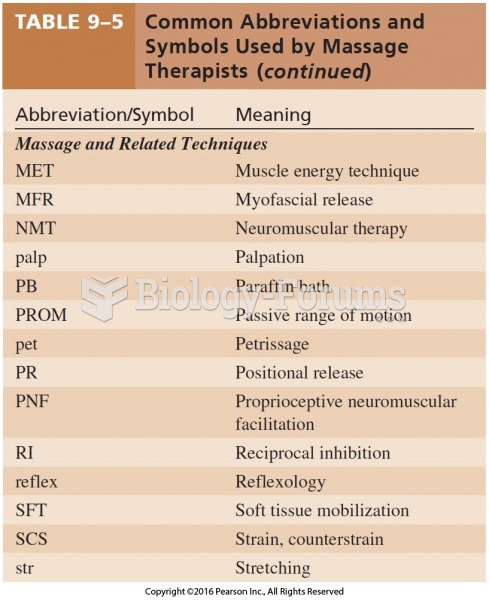|
|
|
Amoebae are the simplest type of protozoans, and are characterized by a feeding and dividing trophozoite stage that moves by temporary extensions called pseudopodia or false feet.
Although the Roman numeral for the number 4 has always been taught to have been "IV," according to historians, the ancient Romans probably used "IIII" most of the time. This is partially backed up by the fact that early grandfather clocks displayed IIII for the number 4 instead of IV. Early clockmakers apparently thought that the IIII balanced out the VIII (used for the number 8) on the clock face and that it just looked better.
In 1864, the first barbiturate (barbituric acid) was synthesized.
Signs of depression include feeling sad most of the time for 2 weeks or longer; loss of interest in things normally enjoyed; lack of energy; sleep and appetite disturbances; weight changes; feelings of hopelessness, helplessness, or worthlessness; an inability to make decisions; and thoughts of death and suicide.
The human body produces and destroys 15 million blood cells every second.
 Adults in the middle-aged group (37–42 years) score higher on measures of generativity than either ...
Adults in the middle-aged group (37–42 years) score higher on measures of generativity than either ...
 Older people who experienced stressful events in their younger years may show personal growth and ...
Older people who experienced stressful events in their younger years may show personal growth and ...





